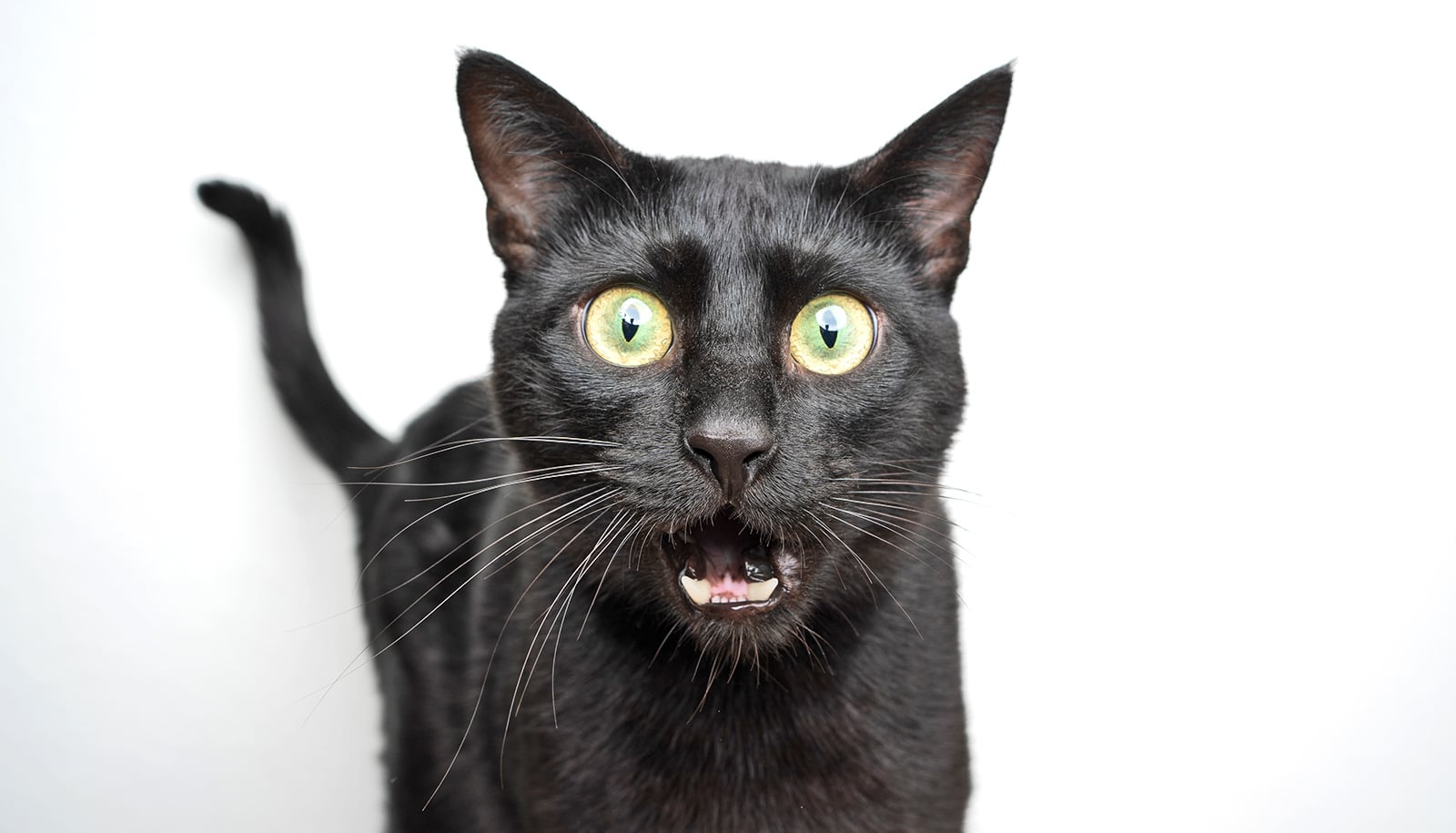It’s Friday the 13th, and people with triskaidekaphobia (fear of the number 13) might be especially nervous.
And on Saturday the 14th – a big day for college football – fans of all stripes across the country will put on their special socks, pull on their lucky jerseys and try out countless gestures, gimmicks and tricks to inspire their team.
“We may joke about our superstition, but it is pervasive and powerful.”
“Superstition comes in all shapes and sizes,” notes David Kling, a professor in the University of Miami’s School of Religious Studies.
“In sports, rituals are common in baseball. Or consider that Michael Jordan wore his UNC shorts under his NBA shorts for his entire career. Or consider that hockey players refuse to shave during the playoffs – at least as long as their team is winning.
“Superstition is present in other areas of life as well, although people don’t like to admit that they are superstitious. In fact, they may even be averse to the idea of believing in supernatural things,” Kling adds.
Superstition is, by definition, an irrational, depraved state of mind—a belief, action, or behavior that has no basis in reality but is nevertheless considered legitimate behavior. And yet, almost all of us are superstitious.
Kling points out that laboratory experiments have found numerous indications of superstitious and supernatural thinking, even among avowed atheists.
“In one experiment, normal people tended to believe they had influence over events even when it was impossible. For example, they believed they had helped a player score a point in a basketball game by causing the outcome, or they had harmed someone by sticking needles in a voodoo doll,” he says.
Research suggests that people are more likely to engage in superstitious behavior under four conditions: when the stakes are high, when they are uncertain, when they lack control, and when they are stressed or anxious, Kling says.
And a central element of superstition is the expectation of supernatural consequences for one’s actions. Call it karma, a cosmic force, God balancing the scales of justice – the idea is that our lives are being watched by powers beyond ourselves.
“According to cognitive scientists, this is a feature of human nature that can be found in all people – believers, agnostics and atheists,” says Kling, a specialist in American religious history.
“In short, superstitious beliefs and behaviors all aim to control supernatural reward and punishment. They are all attempts to exercise control over events.”
From a faith perspective, most people “know” that their superstitious practices have no real value, and yet they practice them. Why?
Kling cited Niels Bohr, Nobel Prize winner in physics, as an example. An American scientist visited Bohr in his house in Denmark and noticed a horseshoe hanging above Bohr’s desk.
“You don’t believe,” the scientist remarked, “that a horseshoe will bring you luck. After all, you are a scientist.” Bohr replied, “I don’t believe that… I hardly believe in such stupid nonsense. But I have been told that a horseshoe will bring you luck, whether you believe it or not.”
“We may joke about our superstition, but it is omnipresent and powerful,” says Kling.
Catherine Newell, associate professor in the Department of Religious Studies, points out that modern science and superstition clash when it comes to the concept of “falsifiability.”
Newell, a scholar of the linked history of religion and science, notes that in the 20th century, several philosophers and historians attempted to define what science is, usually by illustrating what it is not. Perhaps the most famous of the epistemological questions and philosophical definitions comes from philosopher of science Karl Popper, who attempted to draw a clear line between true science and its imitation in the form of falsification.
“Popper was not so much interested in a concrete definition of science, but rather in distinguishing science from pseudoscience,” explains Newell.
“Popper got stuck on the demarcation problem: What can we definitely call science, what can we identify as pseudoscience, and how can we tell the difference?”
By Popper’s standards, the true test of a scientific theory was whether the conclusions reached by applying the scientific method to a question could be shown to be false, Newell notes.
“So when it comes to distinguishing between science and superstition, one of the borderline questions is whether a particular action or belief can be disproven,” says Newell.
“Because while we may feel like it made a difference, we simply can’t know whether wearing our lucky orange and green socks or stroking the belly of your favorite Sebastian stuffed animal before the (University of Miami-University of Florida) game is the reason we won or not.”
Source: University of Miami

